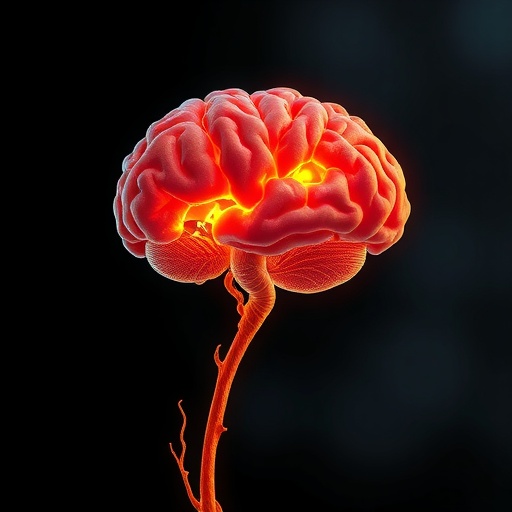Recent research has shed light on the interplay between aging, cognitive complexity, reasoning abilities, and social engagement, particularly through the lens of Theory of Mind (ToM) capabilities. A groundbreaking study led by researchers Iglesias-Pazo, Pellicena, and Valero-Garcia has found that age-related declines in ToM abilities are closely linked to an individual’s cognitive functions and social activities. This enticing exploration opens a window into understanding how our mental faculties evolve as we age, which is crucial, given the rapidly aging population in many parts of the world.
Theory of Mind, the ability to attribute mental states to oneself and others, plays a vital role in social interactions and communication. It allows individuals to interpret and predict behaviors based on inferred intentions, beliefs, and desires. However, as we grow older, there is often a noticeable decline in these cognitive skills. The researchers aimed to decipher the extent and implications of these declines, providing key insights into both psychological and social implications.
In their extensive study, the researchers engaged a diverse sample that included various age groups. They utilized a battery of tests designed to assess ToM capabilities alongside cognitive complexity and reasoning abilities. The results indicated a significant decline in ToM scores with age, which is a cause of concern since these skills are crucial for maintaining relationships and navigating complex social scenarios. As seniors may often find themselves in increasingly isolating situations, understanding these cognitive shifts could foster new strategies for social engagement and emotional support.
One of the most intriguing elements of this study is the correlation found between the level of activity individuals engage in and their ToM capabilities. The researchers observed that those who maintained a higher level of social activity tended to have better ToM performance, even as they aged. This suggests that social engagement might act as a protective factor against cognitive decline, turning the spotlight on the importance of fostering community and social connections throughout the lifespan.
Moreover, the findings extend beyond mere observation; they indicate actionable steps that can be taken to mitigate cognitive decline. By encouraging regular social activities, communities can aid older adults in maintaining their cognitive sharpness and emotional well-being. This is in line with existing literature, which suggests that lifelong learning and active social participation are essential to cognitive health.
Delving deeper into cognitive complexity, the researchers established that individuals with more nuanced understanding and expression of thoughts were likely to show better performance on ToM assessments. This complex interplay suggests that cognitive complexity may be a crucial component of our mental agility in aging, emphasizing the need for mental stimulation as we grow older. By fostering environments that challenge cognitive capabilities, we might not only improve individual ToM skills but also contribute to overall community well-being.
Another fascinating aspect of the research is the highlighting of reasoning abilities in relation to ToM. Participants showcasing high levels of reasoning tended to retain better social cognition even into their senior years. This underscores the significance of honing reasoning skills in educational frameworks and daily life, paving the way for more robust cognitive health in later life.
Understanding these dynamics is not merely an academic exercise; it reflects a pressing societal concern. With the increasing number of elderly individuals experiencing isolation, providing resources and opportunities for social engagement becomes essential. This study exemplifies how interdisciplinary approaches, merging psychology, sociology, and gerontology, can yield insights vital for policy-making and community support systems.
Furthermore, considering the developmental aspects of ToM, it is crucial to understand that social environments play a major role in shaping these cognitive faculties. Childhood experiences, peer interactions, and familial connections all contribute to how effectively we develop and utilize our ToM capabilities throughout life. Thus, promoting these interactions early on can instill lasting benefits in cognitive health as we age.
In summary, this research offers a multi-faceted perspective on aging, cognition, and social dynamics. The clear association between age-related declines in Theory of Mind and cognitive complexity, reasoning abilities, and social activity underscores the importance of supportive interactions as we age. Encouraging active participation in social networks might not only mitigate the decline of crucial mental capabilities but also enrich the lives of older adults, allowing them to engage more fully with their communities.
In light of these findings, it becomes increasingly evident that strategies fostering lifelong learning and social interaction should be integrated into public health considerations and community planning. If we genuinely aim to enhance the quality of life for older adults, we must prioritize understanding and addressing the cognitive challenges they face, while simultaneously empowering them to maintain vibrant social lives.
By delving into these aspects of aging, we pave the way for more informed discussions about the social policies and resources needed to support our aging population. In conclusion, the path toward an age-friendly society must embrace the complexities of cognitive aging while celebrating the potential for resilience through social connectivity and cognitive engagement.
Subject of Research: Age-Related Declines in Theory of Mind and Its Associations with Cognitive Complexity
Article Title: Age-Related Declines in Theory of Mind: Associations with Cognitive Complexity, Reasoning Abilities and Social Activity
Article References:
Iglesias-Pazo, L., Pellicena, M.À., Valero-Garcia, J. et al. Age-Related Declines in Theory of Mind: Associations with Cognitive Complexity, Reasoning Abilities and Social Activity.
J Adult Dev (2025). https://doi.org/10.1007/s10804-025-09526-w
Image Credits: AI Generated
DOI: 10.1007/s10804-025-09526-w
Keywords: Theory of Mind, Aging, Cognitive Complexity, Reasoning Abilities, Social Activity, Cognitive Decline, Aging Population, Lifelong Learning




